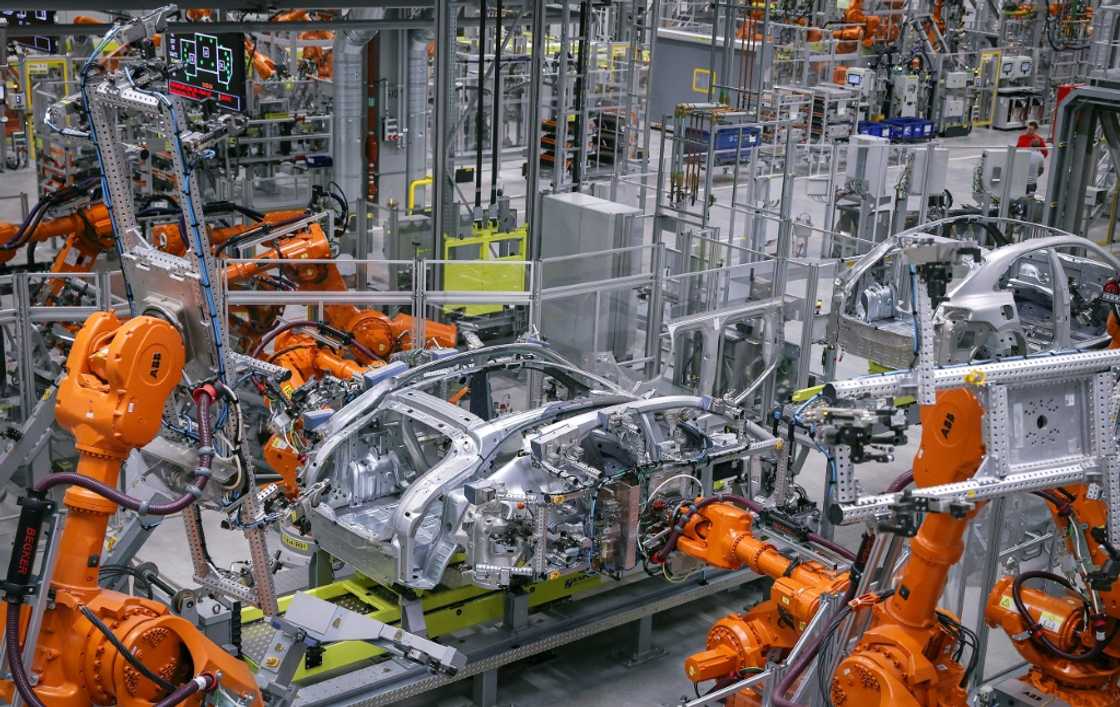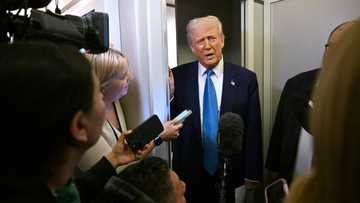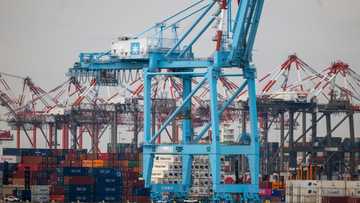Unfair? Figures belie Trump's claims on EU trade balance

Source: AFP
President Donald Trump repeatedly claims that US-EU trade ties are unfair and that Europe is abusing the United States as justification for threatening tariffs.
But the figures paint a picture of a more balanced relationship than Trump describes, one that benefits both sides of the Atlantic.
US services surplus
When Trump criticises the European Union's trade surplus with the United States, he is only referring to trade in goods.
The EU is a major exporter of cars and industrial equipment to the United States and according to the European Commission, there was a goods trade surplus of 157 billion euros ($164 billion) for the 27-country bloc in 2023.
But this figure does not take into account services, which make up the largest part of economic activity.
American firms are very dominant in services, particularly in finance and digital.
Tech titans like Google or Meta don't have any competitors in Europe. In fact, for services, the EU has a trade deficit of 109 billion euros with the United States.
This means the EU's actual trade surplus is 48 billion euros, a negligible figure compared with EU-US trade worth 1.6 trillion euros.
Tariffs barely higher in the EU
One of Trump's bugbears with Europe is about car imports.
He slams the 10 percent customs duties in the EU on cars imported from the United States, comparing it to the 2.5 percent Washington imposes on Europe's cars.
But the reality is more complex than Trump's comments suggest.
The EU and the United States apply customs duties on different products. The EU estimates the "average tariff rate on both sides is approximately one percent".
"We are at low levels even if the EU taxes a little more than the United States on average," said Elvire Fabry, trade geopolitics expert at the Jacques Delors Institute.
The commission points out it is the United States that imposes a 25 percent tariff on pickup trucks from Europe -- the most popular vehicle in the US market.
Some rates are restrictive, especially in the agricultural sector.
As examples, Fabry gave US taxes of 350 percent on tobacco imports, 164 percent on vegetable oils and 132 percent on fruits as well as 32 percent on clothing.
"Trump takes the numbers that suit him," Fabry said.
A win-win partnership
"Trade in goods only paints a part of the picture of the economic relationship between Europe and the US," said Thibaut L'Ortye of the American Chamber of Commerce to the EU.
"Looking at other metrics, including trade in services, mutual investment and affiliate sales, offers a more complete understanding of the breadth and depth of the relationship," he told AFP.
"Ultimately, both economies greatly benefit from the partnership," he added.
The United States is Europe's largest investor, and vice versa, with 5.3 trillion euros worth of investment in each others' markets based on 2022 data, the commission said.
The American Chamber of Commerce to the EU does, however, say there are sectors, including digital, "where the success of American companies has made them more exposed and affected by the EU's initiatives".
From the US perspective, EU landmark digital rules including a mammoth data protection law as well as content moderation and competition laws constitute non-tariff barriers.
A high-risk arm wrestling match
Brussels sees "no justification" for Trump's extra tariffs, but is ready to respond "firmly and swiftly" if the United States goes ahead with extra duties, EU trade chief Maros Sefcovic said during his Washington visit this week.
Rising trade tensions have EU and US businesses worried.
"Tariffs are not the right economic tool. We are concerned about the broad scope of the measures under review, the uncertainty they create," said L'Ortye.
"We must avoid a negative spiral of tit-for-tat tariffs that would only hurt both economies. The EU and the US should urgently seek a negotiated solution," he urged.
PAY ATTENTION: Сheck out news that is picked exactly for YOU ➡️ find the “Recommended for you” block on the home page and enjoy!
Source: AFP




